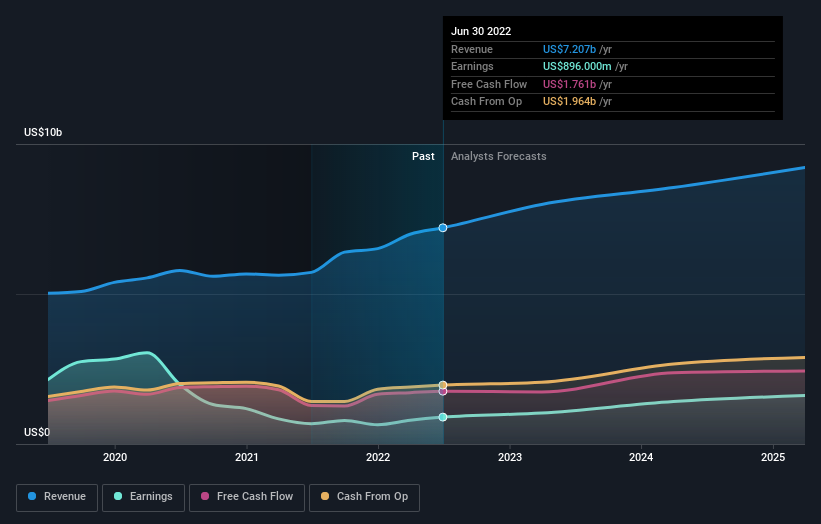Investing in Electronic Arts (NASDAQ:EA) three years ago would have delivered you a 22% gain
Thanks in no small measure to Vanguard founder Jack Bogle, it's easy buy a low cost index fund, which should provide the average market return. But if you pick the right individual stocks, you could make more than that. Notably, the Electronic Arts Inc. (NASDAQ:EA) share price has gained 21% in three years, which is better than the average market return. In contrast, the stock is actually down 19% in the last year, suggesting a lack of positive momentum.
So let's investigate and see if the longer term performance of the company has been in line with the underlying business' progress.
See our latest analysis for Electronic Arts
To paraphrase Benjamin Graham: Over the short term the market is a voting machine, but over the long term it's a weighing machine. One flawed but reasonable way to assess how sentiment around a company has changed is to compare the earnings per share (EPS) with the share price.
Over the last three years, Electronic Arts failed to grow earnings per share, which fell 23% (annualized).
Thus, it seems unlikely that the market is focussed on EPS growth at the moment. Given this situation, it makes sense to look at other metrics too.
The modest 0.7% dividend yield is unlikely to be propping up the share price. It may well be that Electronic Arts revenue growth rate of 11% over three years has convinced shareholders to believe in a brighter future. In that case, the company may be sacrificing current earnings per share to drive growth, and maybe shareholder's faith in better days ahead will be rewarded.
The image below shows how earnings and revenue have tracked over time (if you click on the image you can see greater detail).
Electronic Arts is a well known stock, with plenty of analyst coverage, suggesting some visibility into future growth. You can see what analysts are predicting for Electronic Arts in this interactive graph of future profit estimates.
A Different Perspective
Although it hurts that Electronic Arts returned a loss of 19% in the last twelve months, the broader market was actually worse, returning a loss of 22%. Unfortunately, last year's performance may indicate unresolved challenges, given that it's worse than the annualised loss of 0.5% over the last half decade. While some investors do well specializing in buying companies that are struggling (but nonetheless undervalued), don't forget that Buffett said that 'turnarounds seldom turn'. While it is well worth considering the different impacts that market conditions can have on the share price, there are other factors that are even more important. Even so, be aware that Electronic Arts is showing 1 warning sign in our investment analysis , you should know about...
But note: Electronic Arts may not be the best stock to buy. So take a peek at this free list of interesting companies with past earnings growth (and further growth forecast).
Please note, the market returns quoted in this article reflect the market weighted average returns of stocks that currently trade on US exchanges.
Have feedback on this article? Concerned about the content? Get in touch with us directly. Alternatively, email editorial-team (at) simplywallst.com.
This article by Simply Wall St is general in nature. We provide commentary based on historical data and analyst forecasts only using an unbiased methodology and our articles are not intended to be financial advice. It does not constitute a recommendation to buy or sell any stock, and does not take account of your objectives, or your financial situation. We aim to bring you long-term focused analysis driven by fundamental data. Note that our analysis may not factor in the latest price-sensitive company announcements or qualitative material. Simply Wall St has no position in any stocks mentioned.
Join A Paid User Research Session
You’ll receive a US$30 Amazon Gift card for 1 hour of your time while helping us build better investing tools for the individual investors like yourself. Sign up here

 Yahoo Finance
Yahoo Finance 
